
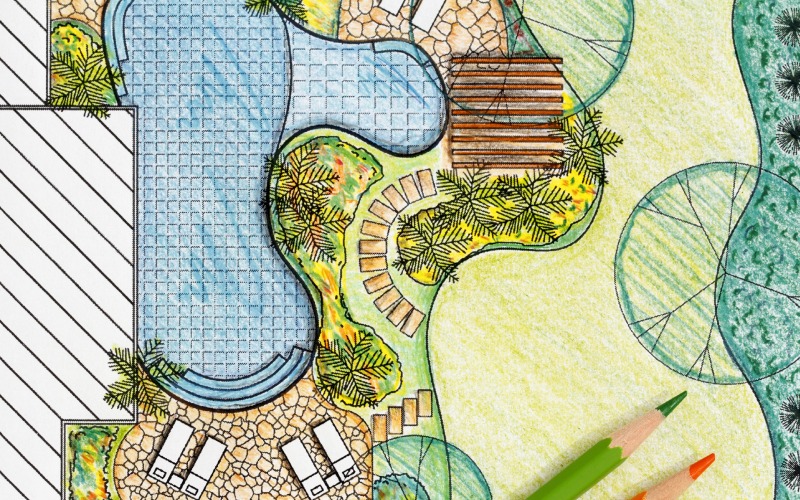
When it comes to constructing a private swimming pool or hot tub, there's more to consider than just design and location. The journey from dream to reality is paved with a series of legal considerations and permits. From checking ground restrictions to maintaining clearance from power lines, there's a myriad of factors that could affect your construction plans. You'll also need to ensure your project doesn't infringe on any utility rights-of-way or easements. And don't forget about the disposal of pool water - it's not as simple as draining it into the street or alley. Moreover, if you're considering harnessing the power of the sun for your pool or hot tub, there are financial mechanisms available to offset the capital costs of installing solar energy systems. Permits are legal documents granted by local authorities that prove your construction project aligns with the regulatory criteria specifically set for a particular area or region. For example, if you're building a swimming pool in Toronto, the responsible body would have a set of regulations you'd need to adhere to. Adhering to these guidelines secures your project against the unforeseen costs which could arise from the removal of the pool, amounting to more legal issues that could send your project down a never-ending tunnel of red-tape frustrations. Holding the necessary permits for a swimming pool ensures that your construction project underscores safety, therefore minimizing the chances of accidents and injuries occurring. With safety inspections and requirements being a significant part of these permits, you'll be ensuring that your pool is not only compliant with the law but is also a safe space for family and friends. In a world where environmental consciousness is becoming increasingly pressing, permits in places like Toronto also keep a keen eye on potential harm to the local ecosystem inflicted by your pool construction. Especially if you're living near a watercourse or protected area, these permits attest that your project will pose no threat to its environment. Last but not least, enhancing the resale value of your property becomes a realistic goal with the proper permits for your outdoor swimming pool. Prospective buyers are more inclined to invest in a home fitted with a legal, well-structured pool, knowing that the previous owners did a thorough job in ensuring the pool complied with all regulations. Bound by the regulations set by the Greater Toronto Area, permits in all their magnitudes play a vital role in the whole swimming pool building process. They are like the foundation to a strong building, setting a sturdy base for all other pieces to fall into place. The first step on your pool-installation journey involves starting the pre-review process. A pre-review includes submitting your pool plans to the city planning department. This initial review ensures pool plans meet zoning regulations and building codes. Next up, it's crucial to collaborate with the Public Works Departments. They will conduct a thorough marking of utility lines, aiding in averting potential damage to primary or secondary gas lines during construction. With the necessary permits secured, it's time to make a splash with the pool installation. Depending on local regulations, you may require an electrical permit for pool equipment, a gas permit for gas-fired pool heaters, and a plumbing permit for the pool drain. Always ensure your plan includes proper water disposal methods, such as draining into the sanitary sewer drain. Lastly, upon completion of the pool installation, it's essential to arrange final inspections to confirm compliance with established standards. Aside from checking the pool for safety and code compliance, inspectors may also ensure the pool is not constructed in restricted areas like a utility right-of-way or easement. As we delve deeper into the process of setting up a private swimming pool, there's more to keep an eye on than simply navigating the permit process and installation. It's critical to consider municipal regulations, construct a thorough safety plan, and successfully manage neighbourhood notifications, all of which play major roles in creating a harmonious environment around your future pool. Municipalities often enforce unique sets of restrictions, especially concerning the location and construction of a pool. Examples include maintaining a minimum distance of 4 feet from any side or rear property lines for pool installations including accompanying equipment like pumps, filters or water disinfection apparatus. Breaching these codes might result in penalties, so it's crucial to familiarize yourself with the specific regulations in your area. Ensuring a safe environment for everyone who uses the pool is paramount. Safety plans typically include measures like proper fencing and gates, pool safety covers, lifesaving equipment such as lifebuoys and reaching poles, and strict pool rules and guidelines. By instigating a steadfast pool safety plan, you'll promote responsible pool use and minimize potential hazards. Informing neighbours about the construction timeline is not only a polite gesture, it's often a legal requirement. By notifying those living nearby about potential noise, dust or any temporary discomfort this project might give rise to, you'll likely avoid complaints or tensions within the community. Maintaining transparency about your plans helps build a friendlier neighbourhood atmosphere and ultimately smoothens your pool installment journey. Curating a private swimming pool or a hot tub isn't just about the construction process. You must also consider the surrounding area and enforce necessary measures to ensure compliance with local regulations. This involves understanding the requirements for a pool enclosure, constructing a legally compliant fence, and adhering to proper guidelines for draining your pool. A pool enclosure's primary purpose is to augment safety, preventing unsupervised access to the pool area, especially from young children or pets. But, its specifications aren't arbitrary. In Southwestern Ontario, for instance, all swimming pools capable of holding 36 inches or more of water necessitate an enclosure permit. Even temporary pools aren't exempted, as indicated by municipalities in the region. In contrast, hot tubs featuring a lockable cover typically don't demand such a permit. Build your pool enclosure or fence under strict compliance with local regulations. For instance, in Toronto, swimming pools, hot tubs, and similar structures, if featuring a depth of 60 cm or more at any point, cannot exist without installing a fence as specified in the local Fence Bylaw. Failure to abide by these mandates may lead to legal implications, not to mention compromising public safety. Once the pool is operational, proper drainage is essential. Usually, a private swimming pool or a hot tub's contents are to be controlled and drained into the sanitary sewer drain, prohibiting disposal into the alley or thoroughfares. Ignorance or non-abidance to this guideline might infringe local sanitation protocols, with probable penalties or fines. Navigating location-specific restrictions is crucial in pool installation. Regulations vary based on municipality, with certain locations imposing stringent setback requirements and lot grading permits. Understanding these limitations is paramount to assuring your pool's legality and safety. Setback requirements for pool installation necessitate maintaining a specific distance between the pool and property lines, the house itself, and any secondary structures present on the property. These restrictions are critical in preventing potential disputes between neighbours, ensuring privacy and mitigating any potential safety issues. Navigating the permit process and legal considerations for building a pool is essential to ensure a smooth and conflict-free project. Complying with local regulations and obtaining the necessary permits are critical steps. Key aspects include pre-review processes, utility line marking, pre-construction meetings, and financial planning. Adhering to municipal regulations, safety plans, and neighborhood notifications is vital for maintaining harmony. Location-specific restrictions like setback requirements and lot grading permits are as important as the pool itself. People for Pools can guide you through each step, ensuring legal compliance and a safe, enjoyable pool for everyone.Understanding the Importance of Permits for Building a Pool
The Role of Pool Permits in Regulatory Compliance
Safety Considerations from a Legal Perspective
Environmental Impact and Relevant Permit Requirements
How Permits Affect the Resale Value of Your Property
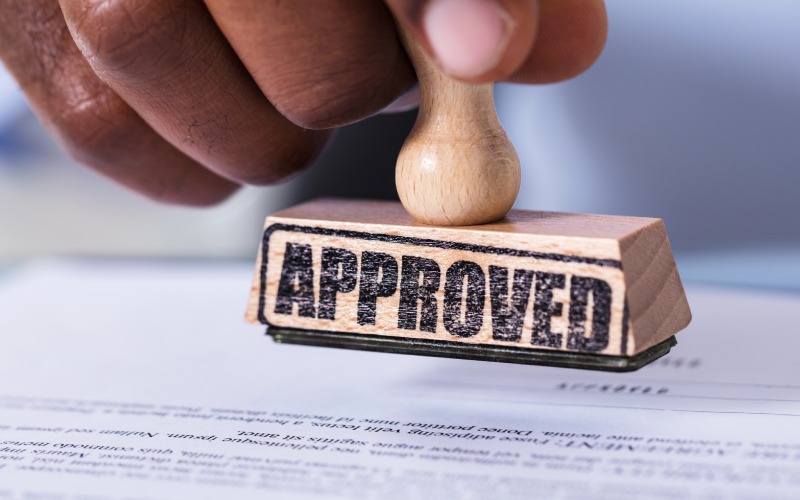
Steps to Obtain a Pool Building Permit
Initiating the Pre-Review Process
Liaising with Public Works Departments
Installation of the Pool
Scheduling Final Inspections for Compliance
Dealing with the Complexities of Backyard Pool Regulations
Municipal Level Regulations and How They Impact You
Creating a Backyard Pool Safety Plan
Managing Neighbourhood Notifications and Building Relations
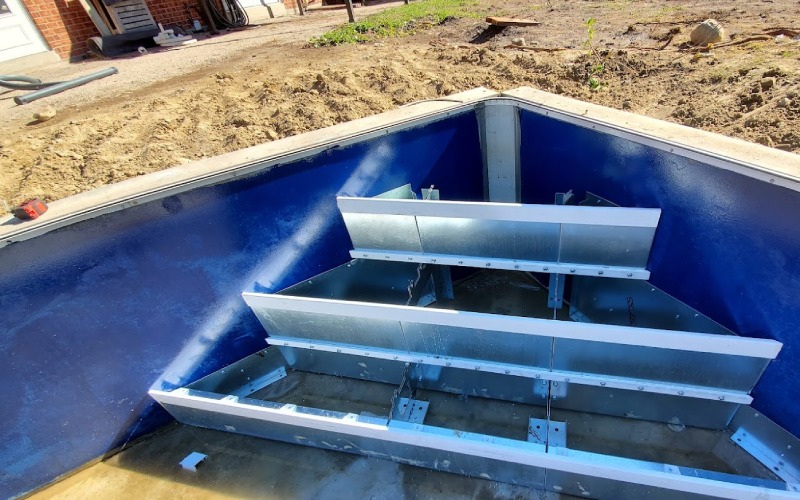
Managing Pool Area Requirements
Requirements for Pool Enclosure
Building a Legally Compliant Fence for Your Pool Area
Guidelines for Draining Your Backyard Pool
Navigating Location-Specific Restrictions
Understanding Setback Requirements for Pool Installation
Building Your Pool with Due Diligence and Legal Compliance
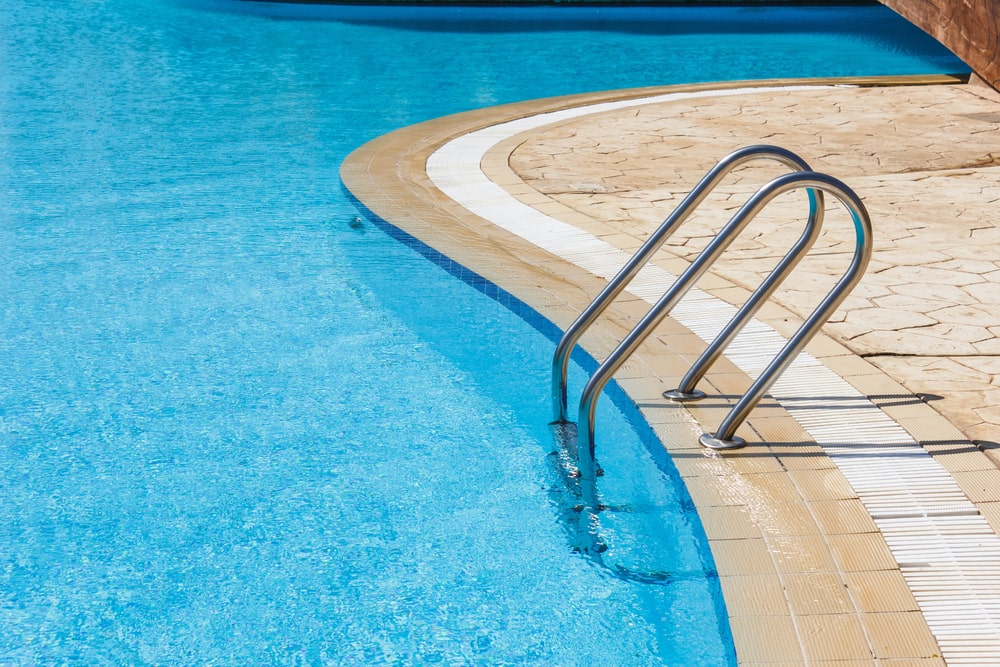
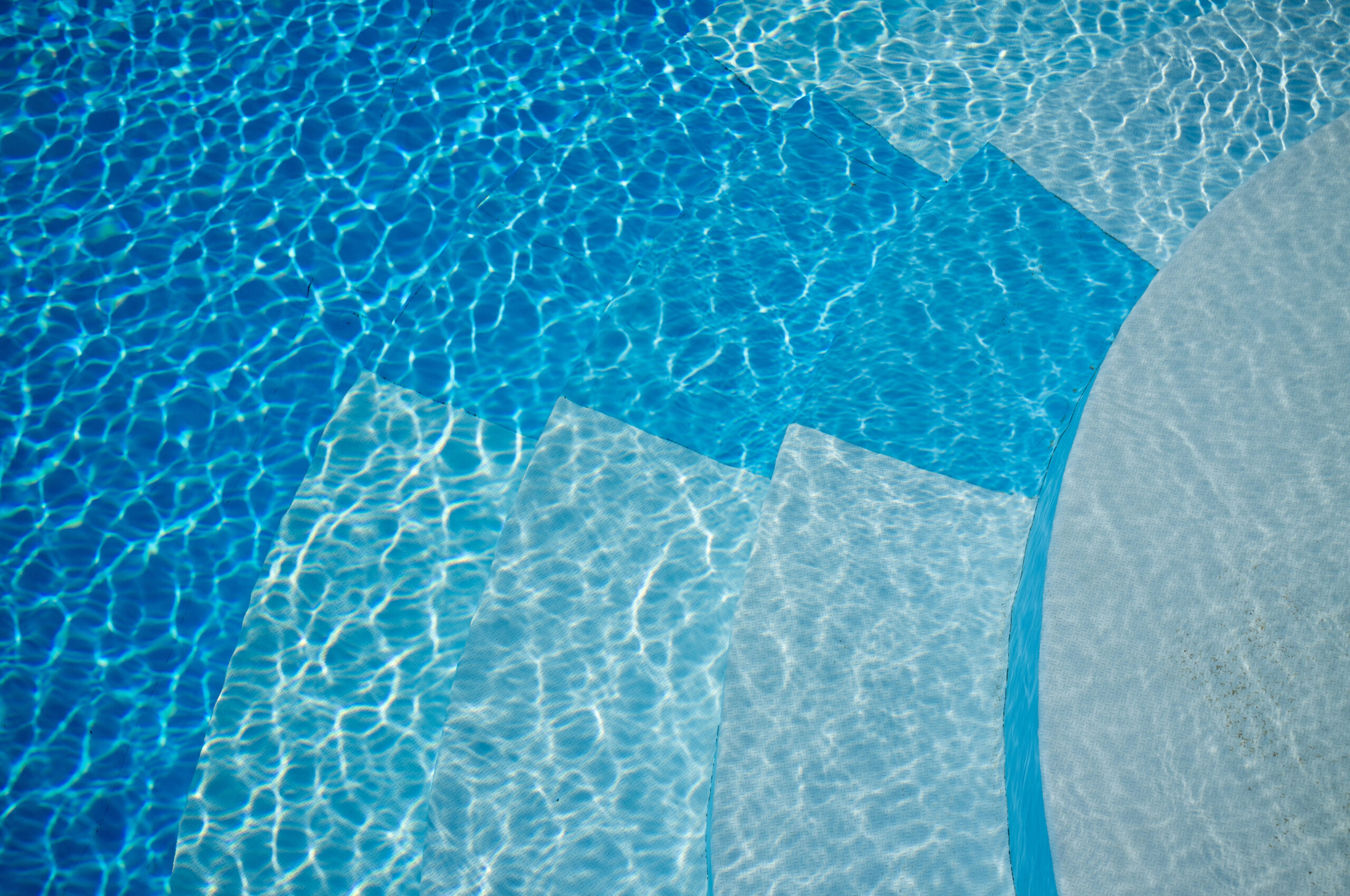
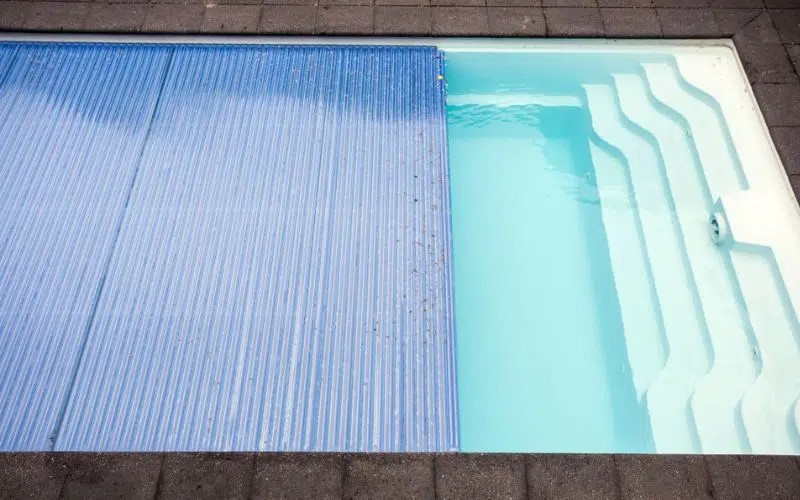
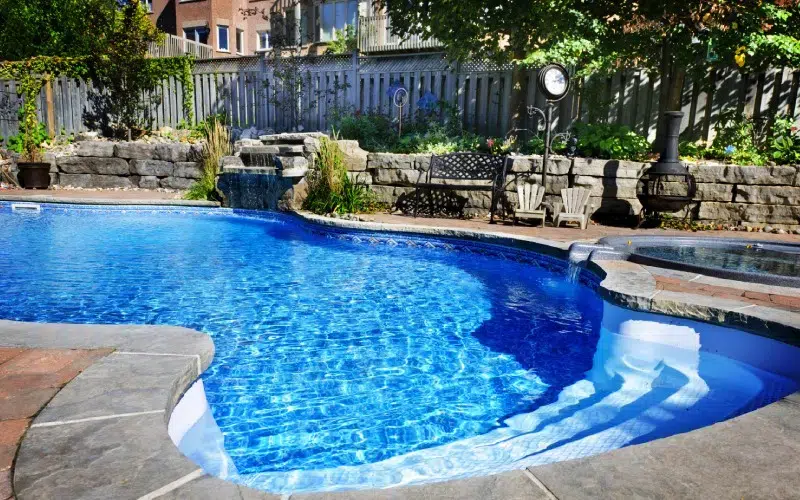
While we strive to provide as much useful information and tips as possible in our blogs, you may still have questions about your pool. That's okay! That's what we're here for. Give our team a call to discuss any questions you may have or the services you're interested in. Not only can we thoroughly answer your questions and concerns, but we can also help you regularly maintain your pool.
Give us a call, email us, or fill out and submit a form below and we'll respond promptly. We proudly service the Greater Toronto Area and can provide you with a free quote.

PEOPLE for POOLS is a professional pool company that can take care of your pool this season. Call us today to inquire about our pool maintenance service. Potential customers can receive a free quote for our services.